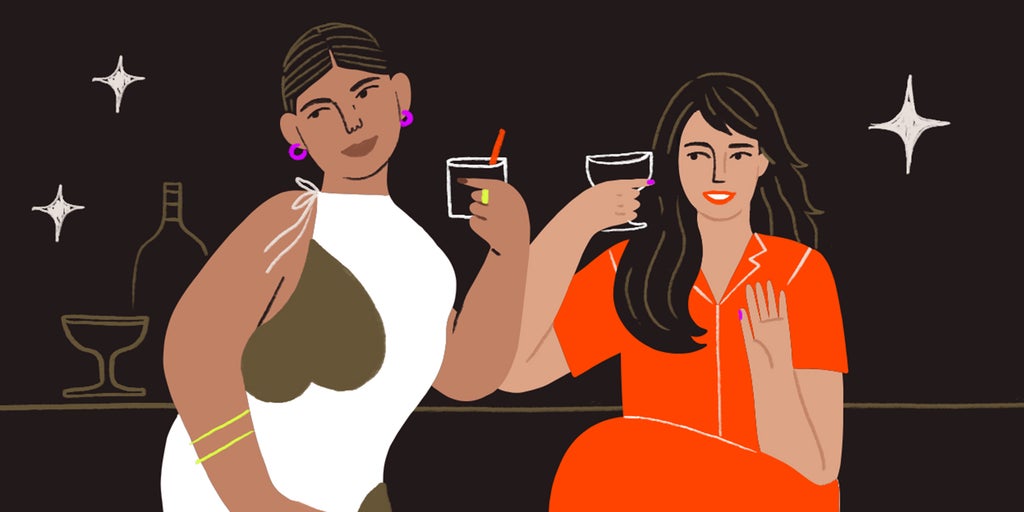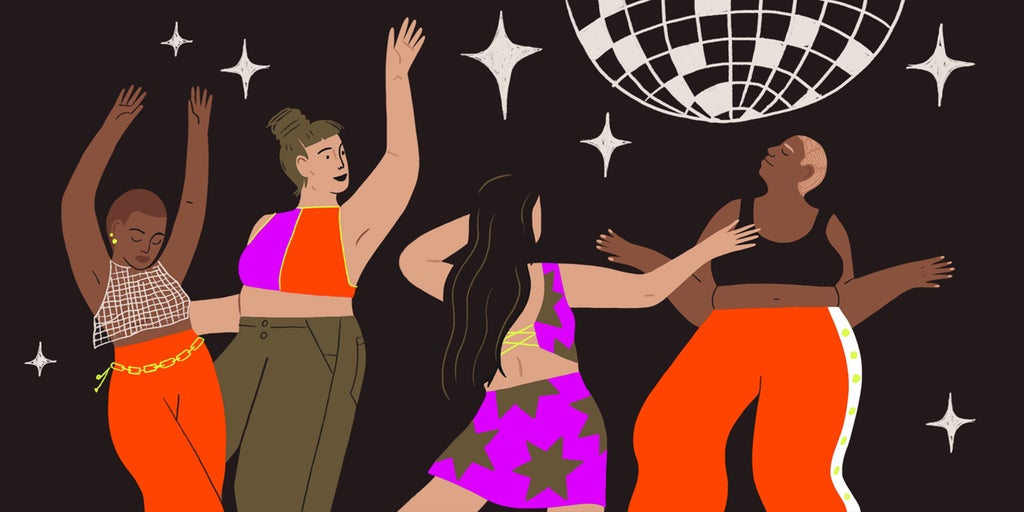It’s been almost nine months since the pandemic started, and at this point I’ve gotten used to missing things, people, and places that I once took for granted — my favourite ramen spot, which closed for good in March; my local cinema; even my old office. But most of all, I miss lesbian bars.
Though I came out as bisexual at 17, the first time I visited a lesbian bar was after I graduated from college, when I moved to New York City for an internship. Like most people, I had a ton of things I was excited to do once I arrived. But before visiting classic tourist attractions like the Empire State Building or Central Park, I wanted to go to a lesbian bar. I was hoping to find a place for myself in the queer community, somewhere I could feel at home.
Of the 2,100 drinking holes in NYC, by the time I arrived, only three were lesbian bars: Cubbyhole, Henrietta Hudson (both in the West Village), and Ginger’s Bar (in Brooklyn). My first weekend in the city, I decided to go to Henrietta’s, which, frankly, is not what comes to mind when you picture a must-see NYC venue. It’s a small dive bar with a few seats, cheap drinks, and a tiny dance floor that gets way too crowded on weekends. I was thrilled to be there.
I didn’t know anyone in the city yet, so I went to Henrietta’s by myself. I scored a seat at the bar, and sat there feeling awkward for a few minutes. The sense of loneliness didn’t last long, though. As the bar started to slowly fill up, I suddenly realised that I was surrounded by more queer women than I had ever encountered in my four years in college, which was an experience in itself. I didn’t know them personally, but if I turned to anyone to tell them about my experiences with other women, they would likely be able to relate. Historically, queer bars have been one of the few places where queer people are free to truly be themselves, so most come with a real sense of camaraderie. In fact, soon after I sat down a group of women invited me to join their game of Jenga. I met the people who would become my closest NYC friends that night, and almost every time we went out, we made sure to start or end the night either there, or at Cubbyhole or Ginger’s. But even when I went to a lesbian bar alone, I never felt lonely.

The strong sense of community and belonging that I felt in lesbian bars was something I’d been searching for since I came out. My coming out story was fairly straightforward and conflict-free — after having crushes on both girls and guys throughout my life, I finally realised I was bisexual my junior year of high school. Most people around me were pretty okay with it, and a couple months later I started dating a woman for the first time. Though she ultimately decided to go back into the closet and dismiss the months we spent together as “confusion”, which was incredibly hurtful to me, the relationship did make it easier for me to get comfortable in my orientation. Feeling at peace, however, didn’t equal feeling at home.
When I headed off to college in Syracuse, I was certain I could find the supportive queer community I always dreamt of. A couple months into freshman year, though, I realised I had been too optimistic. My public communications program in college consisted of mostly straight, cisgendered people, and while I did not face outward homophobia, whenever I mentioned attraction toward another woman I was mostly met with uncomfortable silence. The queer community in Syracuse outside of the school was extremely small and consisted of older women who mostly grew up together, so it felt out of reach to me. I craved the presence of people who shared my experience as a queer woman, but had no idea where they were. Finding a new queer relationship was also out of the question — how was I supposed to meet a woman I’d like to date when I couldn’t even find queer friends?

Lesbian bars offered a kind of salvation. In them, I found the community I’d been searching for. As a single woman who hates dating apps, they also became a safe place for me to find potential dates. When I ask someone out at a lesbian bar, the worst that can happen is they say they’re not interested. If I tried to approach a woman at a place that does not primarily serve queer people, I’d have to do so without knowing if she’s queer, and without knowing if she’s homophobic. The risk of the encounter potentially turning violent was something that kept me from approaching other women with ease since I came out, and lesbian bars were the only places where I could put that worry to rest. I preferred to have most of my first dates in lesbian bars for the same reason. First dates are stressful enough as is without having to wonder, “Are the people over there staring because they think we’re cute, or am I about to be hate-crimed?”
I haven’t been to Henrietta’s, or any other lesbian bar, since March 2020, when restaurants began shutting down in New York City due to the pandemic. And I fear for their future. The last couple of decades had already been hard on lesbian bars; their numbers dwindled from around 200 in 1980 to only 15 in 2020, according to The Lesbian Bar Project’s website. Between 2007 and 2019, nearly 52 percent of bars catering to queer women closed their doors, research conducted by Oberlin College professor Greggor Mattson, PhD, showed. There is still no knowing when the pandemic will end, and by then these numbers might even be smaller. The places where I first felt like a true part of the queer community could be gone forever.
Resilience is an inherent part of the queer experience, so it’s not a surprise that all around the U.S., lesbian bars have been fighting to stay afloat via fundraisers, virtual events, and selling merch. There’s no knowing if these measures will be enough, but I’m desperately hoping that they will be. I spent most my life feeling like I was out of place, and lesbian bars are one of the few places where I feel I belong. To be able to sit in a place that is for and owned by queer women like myself is a profound experience. Going to these lesbian bars and being surrounded by other queer people, having conversations, making connections, or even just existing there has been incredibly validating and has helped me feel truly at home in my own orientation and desires. I hope that when the pandemic is over, I will still be able to head to Henrietta’s on a Thursday, oldies night. Eighties hip-hop will be playing. I’ll find the last seat at the already-cramped bar, order myself a cheap vodka-soda, and I will feel like I’m home.
Welcome to The Single Files, Refinery29’s new bi-monthly column. Each installment will feature a personal essay that explores the unique joys and challenges of being single right now. Have your own idea you’d like to submit? Email single.files@vice.com.
Like what you see? How about some more R29 goodness, right here?
What It’s Like To Be Single At (Kind Of) 31